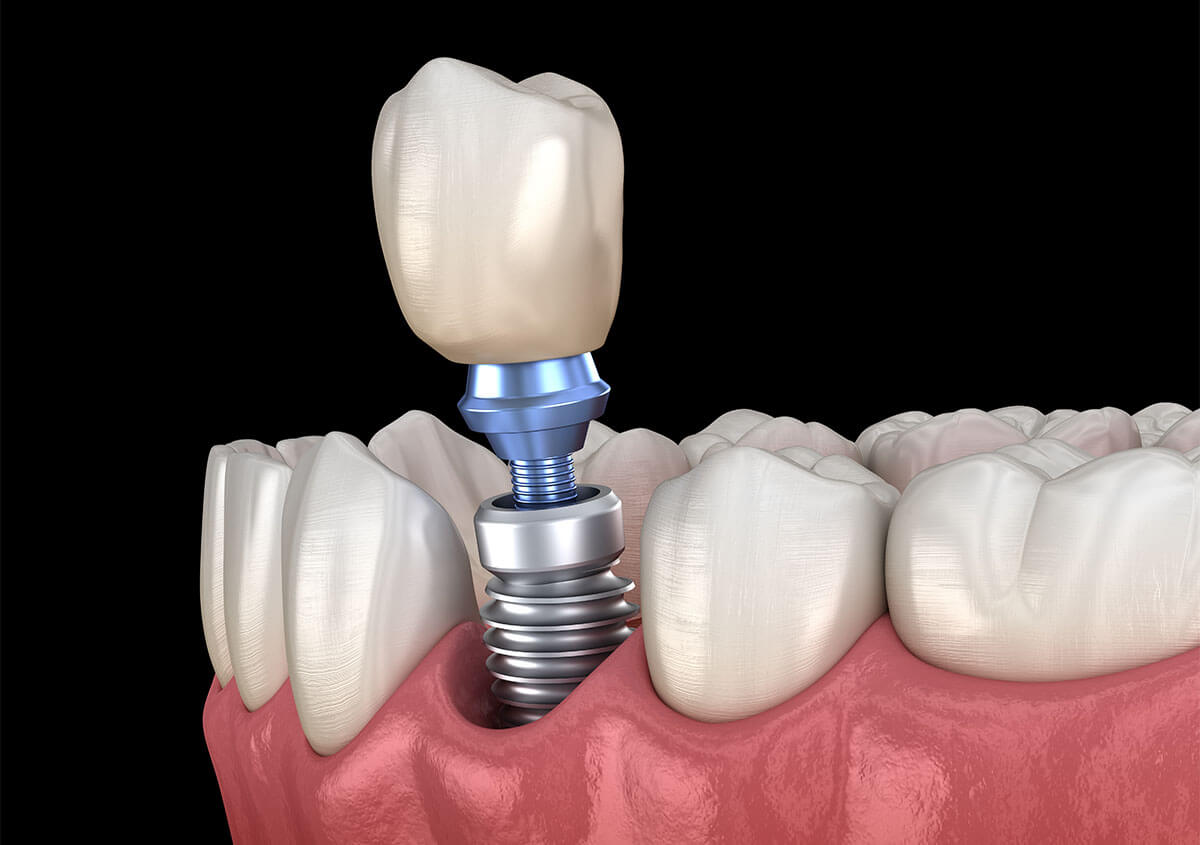What are dental implants, and how do they replace teeth?
At State Street Smiles, Drs. Edward and Dina Jackson, our husband-and-wife dental team, work with patients of all ages, ensuring they have access to solutions to improve their smiles. When tooth loss occurs, it is critical that patients replace their teeth as soon as possible to reduce the risk of shifting teeth or reduced efficiency in eating and speaking. Dental implants are an excellent solution for many of our patients. These titanium posts anchor into the jawbone and hold dental restorations based on the patient’s unique dental needs.
How are dental implants used?
There are a few different ways in which our team may use dental implants:

- Single tooth implant. A single-tooth implant is set into the jawbone to replace a missing tooth. A crown is attached to the implant, providing a natural-looking and functioning replacement for your lost tooth.
- Multiple tooth implants. Multiple dental implants are used to securely anchor a dental bridge or partial denture, allowing you to enjoy better biting and chewing abilities.
- Full mouth dental implants (full arch restoration). An entire arch of teeth, including the top and bottom arches, can be replaced with just four to six strategically placed implants and a complete row of artificial teeth known as a denture. This gives you excellent stability and restores your smile’s functionality so you can enjoy all your favorite foods again.
- Mini dental implants. These implants are smaller in size than traditional dental implants and can be used to replace one or more missing teeth. They are a wonderful option for those who do not have enough bone for a traditional implant and offer the same outcome as a larger implant, with the bonus of being less invasive.
These are just some of the ways Drs. Edward and Dina Jackson of State Street Smiles may use dental implants to restore your smile. If you would like to learn more about how we can help you achieve excellent oral health after tooth loss with dental implants, do not hesitate to contact our office in Hackensack, NJ. The office is at 405 Main Street and can be reached by calling (201) 389-2183. We accept new and returning patients and families into our office, serving the surrounding communities of Teaneck, Maywood, and Paramus, NJ

Dental implants are titanium roots, that are replaced with in the jawbone to resemble a tooth or group of teeth. A screw is inserted through the gums and into the jawbone. A porcelain crown is then attached to the screw to become the new tooth or teeth. They can be used to support dental prosthesis including crowns, dentures, and bridges. Today’s treatments are so natural looking, no one will know you had surgery. There’s approximately a 95% success rate for all implants. With modern advances in dentistry, some implants can be restored immediately with life like all porcelain crowns. For more details ask your dentist.




